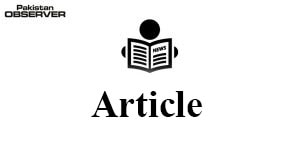Kashmiri Liberation: An unfinished agenda
ON 05 January 1949, the United Nations guaranteed the right of self determination to the people of Jammu and Kashmir through the promise of an impartial plebiscite.
Every year, on the same date, Kashmiris around the world observe this day as an aide memoire and a reminder to the UN and its member states of the unfulfilled commitment to the Kashmiri people.
Seventy-three years have gone by but the people of Kashmir remain under the brutal oppression of the Indian occupying forces, with generations of Kashmiri’s having been martyred, women raped and children left as orphans.
The brutal Indian occupation continues yet generations after generation of Kashmiri people continue to remain steadfast in their resolve for self determination.
While human rights violations continue in the occupied territory, the international community has turned a blind eye to the oppression despite the documentation of the violations in the occupied valley.
Therefore, 05 January is an important day in Kashmir’s history, as it is a reminder of the promise of self-determination, which stands unfulfilled to date.
India’s blatant disregard of the UN resolutions followed by human rights violations and steps like the revocation of Article 370, thus revoking the autonomy of the occupied territory have all added to the barefaced Indian repression.
On 05 August 2019, India’s Hindu-nationalist government led by Prime Minister Narendra Modi downgraded Jammu-Kashmir’s status and divided it into two federally governed territories.
Ever since, New Delhi has enforced a set of new and oppressive laws which are aimed at shifting the demographics in the Muslim-majority region, many of whom want independence from India or unification with Pakistan.
This was followed by the enforcement of several harsh and oppressive measures as well as an information blackout and a very strict security clampdown in Kashmir with thousands of Kashmiri youths, pro-freedom leaders and politicians were arrested, with all kinds of communication lines severed.
The revocation also meant that Indians outside the state gained the legal right to own property there, an attempt to alter the demographics and also establish a Hindu majority in a primarily Muslim region.
This also led to a social and economic crisis. Human rights groups like the Human Rights Watch were also critical of Indian oppression in Kashmir; however, their pleas reached deaf ears. Therefore, the abrogation of Article 370 opened new vistas for the Modi regime to further oppress the Kashmiri people and continue with the unabated violations. It can be said that, history’s longest ever curfew has left an indelible impact on the life of the Kashmiri population, yet the international community fails to take action.
The attempts at erasing Kashmiri identity by the Modi regime is a reflection of its policy of hatred towards its Muslim population. Indian occupied Kashmir is now one of the biggest militarized zones, with the population being deprived of its basic rights as enshrined in the constitution, making it a large prison.
05 January is a reminder for the international community that Kashmir still reels under the subjugation of Indian occupation with the situation becoming critical with every passing day, further dampening the hope of a plebiscite as promised by the UN.
Pakistan has been an ardent supporter of the liberation of Kashmir from the shackles of Indian oppression and continues to extend its moral, diplomatic and political support for the oppressed Kashmiris.
What has happened in Kashmir on 05 August 2019 is not something new, it is however, an attempt by the Indian government to completely annex the state and erase Kashmiri identity completely.
The commemoration of 05 January as Kashmir Self-Determination Day is also a stark reminder for the international community and the UN to reflect on its failed commitment. The Kashmir dispute is one of the oldest unresolved disputes and is a reflection of the UN’s failure in face of Indian intransigence.
—The writer is a Research Fellow at the Institute of Strategic Studies, Islamabad.










